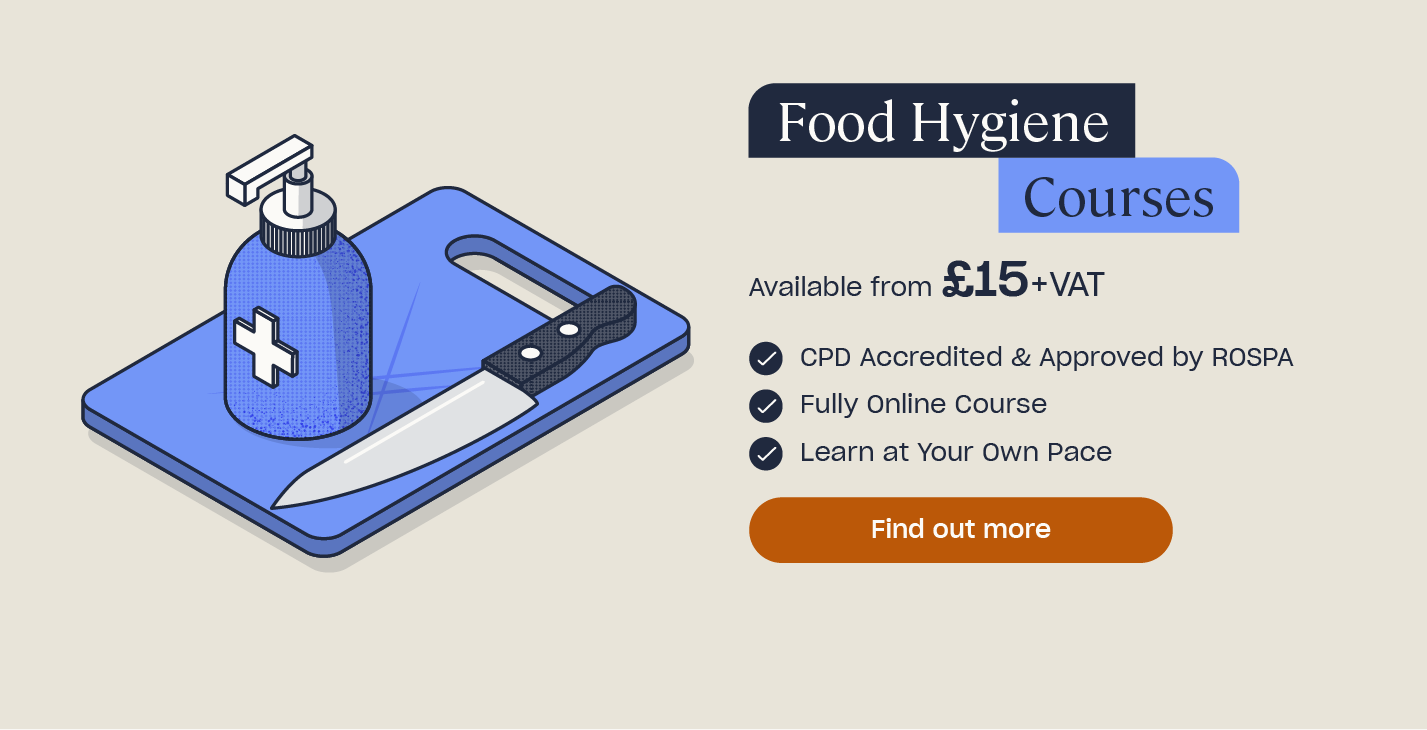Answering Your FAQs About Egg Safety
Knowing how to safely prepare, store and eat eggs is essential for food safety, especially if you work in the food industry and are required to cook and serve eggs to customers. Despite eggs being such a common ingredient, there are lots of questions that you may not know the answers to. Take a look at our egg FAQs below and see if we can answer your egg safety questions.
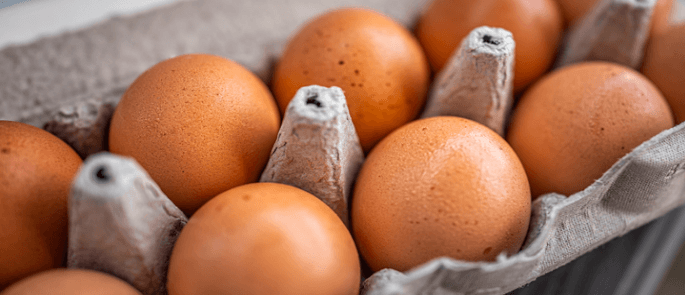
Can You Eat Raw Eggs?
Advice on whether you can eat raw eggs or lightly cooked eggs (like those with runny yolks or as used in mayonnaise) has changed over the years, but current guidance is that hens’ eggs with the British Lion stamp on them are safe for everyone to consume, even vulnerable groups such as pregnant women and older people.
Eggs that come from other birds, such as geese and ducks, are less safe to eat raw as they are more likely to contain Salmonella. These types of eggs should always be cooked thoroughly before eating. The temperature that kills Salmonella in eggs is a cooking time of two minutes at 70 °C (or 30 seconds at 75 °C). This time/temperature combination will normally destroy any harmful Salmonella bacteria and make the eggs safe to eat.
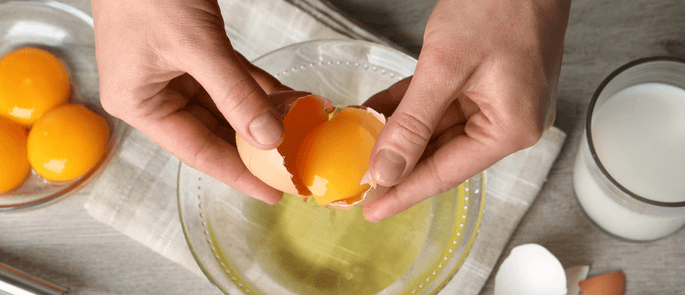
You can find out more about eating different foods raw in our article: Can You Eat This Raw?
Can You Eat Eggs After the Best Before Date?
All eggs have a best before date of 28 days after they are laid. After this date has passed, the quality of the eggs will deteriorate, and if any harmful Salmonella bacteria is present, it could start to multiply and cause food poisoning.
You can eat eggs after the best before date, as the date represents food quality not food safety, but they will no longer be as fresh or at their best. If you are planning to eat eggs past their best before date, ensure you cook them thoroughly to destroy any harmful bacteria and avoid eating them raw or only lightly cooked.
Eggs will be safest to consume after their expiration date if you have stored them in the fridge, as cold storage can extend their life by a few weeks.
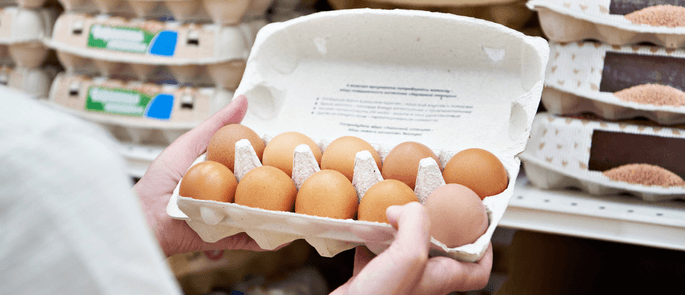
You can learn more about the difference between best before and use by dates in our article: What is the Difference between Use By & Best Before Dates?
Where to Store Eggs
Should You Keep Eggs in the Fridge?
Read the packaging of any egg box and it will tell you to ‘keep refrigerated after purchase’. This helps to extend the shelf-life of the eggs compared to storing them at room temperature. Eggs should be stored in their original box in the middle of your fridge, rather than in the doors, as the temperature is cooler in the middle and will help to preserve the eggs for longer.
You can store eggs in a pantry cupboard or even on your kitchen countertops, provided that the temperature is cool and consistent. Any large fluctuations in temperature can quickly make eggs deteriorate in quality, which is why it’s recommended that eggs are kept in the fridge instead.
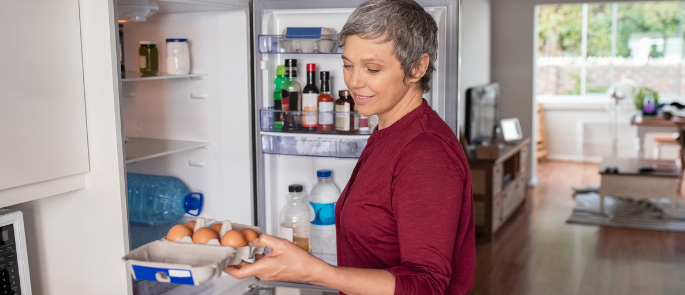
You can find out more about correct fridge storage in our article: Do You Know Which Fridge Shelves You Should Store Your Food On?
How to Preserve Eggs
Can You Freeze Eggs?
Whether you can freeze eggs or not depends upon their state and whether they’ve been cooked or not. You cannot freeze whole eggs in their shells, for example, as the egg will expand as it freezes, and the shell will crack. Instead, raw eggs can be frozen if they are taken out of their shells and then whisked to blend the yolk and white together – egg yolks frozen on their own can change texture and become rubbery when frozen.
Cooked eggs, such as scrambled eggs or omelettes, technically can be frozen but the freezing/defrosting process is likely to alter their texture. As a general rule, if you do freeze cooked eggs, try to use them up within six months.
You can find out more about freezing eggs and other food products with our article: How Long Does Food Last in the Freezer?
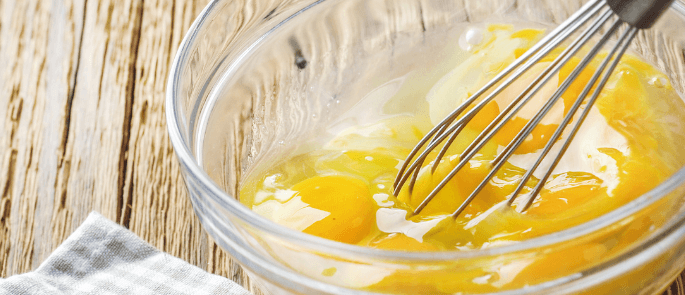
Can You Reheat Eggs?
The answer to this depends on how the egg was cooked in the first place – whilst some eggs can be reheated, others can’t. Reheating eggs will likely alter their texture, particularly if the egg has been fried or scrambled. For other types of eggs, like boiled eggs or omelettes, reheating should be absolutely fine.

You can find out more about reheating eggs and other food products with our article: Can You Reheat This?
Further Resources:
- Food Hygiene Courses
- Can I Freeze This & For How Long?
- How to Store Cheese
- Food Safety Myths and Facts
- Food Safety Awareness Quiz


